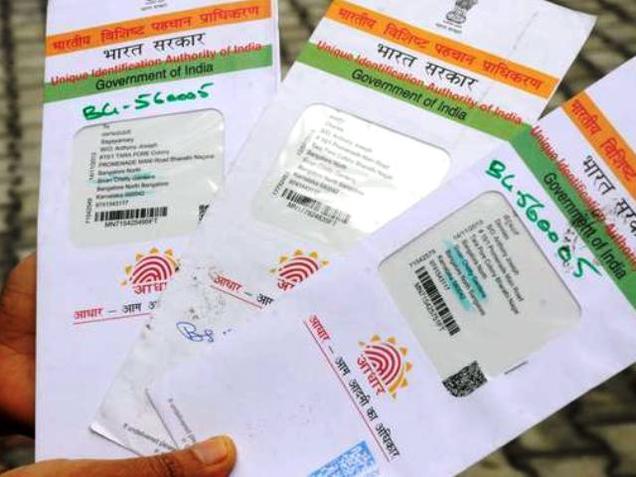By Shivani Bagul (NALSAR, Batch of 2019)
The Aadhaar (Targeted Delivery of Financial and Other Subsidies, Benefits and Services) Bill, 2016 is a money bill in the Parliament. It was passed on 16th March 2016, and aims to provide legal backing to the Aadhaar unique identification project. Here’s how it came into place-
4th March, 2016: The National Democratic Alliance (NDA) had sought to reset the subsidies regime by putting forward the Aadhaar Bill in the Lok Sabha. Hence, it introduced the Aadhaar Bill, which seeks to make the use of Aadhaar mandatory for availing government subsidies, and at the same time, it tried to address concerns regarding the privacy and protection of personal information was given by citizens to obtain Aadhaar cards.
The Bill was also tabled as a money bill in the Lok Sabha, but its fate was left undecided. This would also address many issues related to the privacy and security of the biometric information provided by the citizens, which was classified as “sensitive personal data or information” by the Information Technology (IT) Act.
The Bill also prohibits the sharing of core biometric data in any form; however, certain information about an individual could be shared, subject to certain conditions, except core biometric information. The bill also mandates that the enrolling agency shall inform the individual who is undergoing the enrolment about who the data is being shared with, and how it will be used. It must also inform the individual that he/she shall have full access to such data.
The Bill directs the UIDAI to have sufficient security of identitifying information and authentication records of the individuals. It also directs the UIDAI to ensure that in no way, is any information leaked to outside parties.
Special measures must be taken by the Authority to issue numbers to women, nomadic tribes, street dwellers, senior citizens, persons with disability, and unskilled and unorganized labourers. The Aadhaar number in itself cannot be held as proof of citizenship or domicile.
6th March, 2016: The Lok Sabha categorized the Aadhaar Bill as a money bill in the Parliament. The Opposition however, was against this. They were of the opinion that the NDA was merely tabling the Aadhaar Bill as a money bill in order to avoid the Rajya Sabha. The Leader of the Opposition in the Rajya Sabha, Sahab Ghulam Nabi Azad, raised apprehensions about this very same question. He said that the Finance Minister, Arun Jaitley was trying to categorize it as a money bill because the Rajya Sabha cannot reject a money bill. He also said that the Aadhaar Bill does not fulfill the requirements for a money bill, which is laid down by the Constitution. These Bill should have certain features- it should levy tax through it, or some expenditure must be put through the Consolidated Fund of India. These are the two categories to be fulfilled for a bill to be tabled as a money bill.
11th March, 2016: The Bill was passed by the Lok Sabha to ensure that subsidies and services reach the beneficiaries directly, which thereby went against the scheme’s current mandate of merely assigning an identity to citizens.
The Aadhaar Bill was passed on 11th March, with a voice vote after the Finance Minister assured that the data would not be misused in any manner.
16th March, 2016: The Lok Sabha rejected the recommendations made by the Rajya Sabha, which included 5 key amendments that were made by it. Once the Lok Sabha passes a money bill, with or without the amendments recommended by the Rajya Sabha, it is deemed to have been passed by both the Houses.
The Aadhaar Bill is now considered by the government to be a significant instrument for implementing its DBT (Direct Benefit Transfer) schemes by targeting beneficiaries better, but according to the Opposition in the Rajya Sabha, it violated the Supreme Court’s decision that the Aadhaar card should be made voluntary, and not mandatory. Arun Jaitley however, said that the parliament cannot legislate since the matter is before the Supreme Court.
The Aadhaar Bill for the Aadhaar (Targeted Delivery of Financial and Other Subsidies, Benefits and Services) Act was approved by the Parliament on 16th March.
28th March, 2016: The Centre notifies the Aadhaar Act. It would be used for all benefits linked to the Consolidated Fund of India. It has the provision that both the centre and the state government can use Aadhaar for the disbursal of benefits and subsidies.
The Bill also has a penalty provision for violation of the rules, which includes a fine of 10,000-1 lakh, or imprisonment from 1-3 years.
29th March, 2016: The President, Pranab Mukherjee, has given his nod to the Aadhaar law, and it shall take some more time to come into force.
















Thank you for this article……I would like to bring a small mistake to your notice…the bill was passed on
11 march 2016 according to other sources….will u please confirm the actual date and inform us….